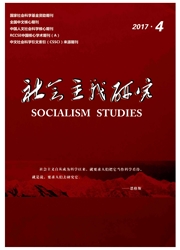

 中文摘要:
中文摘要:
村庄权力结构的多元利益分析主要关注村庄权力结构的多主体性和多元利益的特点。村庄权力结构包含的多主体凭借不同资源互动,并根据拥有的权力份额而拿回各自的利益份额,村庄权力结构会随着互动发生变化。对历史上"皇权—士绅—小农""国家—农民"和"国家—体制精英—非体制精英—普通村民"三种村庄权力结构的多元利益分析表明,村庄权力主体间的均衡利益是一种村庄权力结构稳定存在的核心内容,当这种均衡被破坏到一定程度,村庄权力结构就要发生质的变迁。对湖北G市国家主导建构的新村庄权力结构的多元利益分析可知,只有当各权力主体确实满足其从权力结构中获得的利益并常态化地进行博弈互动时,新的村庄权力结构才可能模式化存在,并取得良好的治理效果,否则就只能是一种没有实质内容的概念化和形式化存在。此外,一种稳定的村庄权力结构应该包含村庄中所有参与博弈的重要主体。
 英文摘要:
英文摘要:
The analysis of multi interests of the village power structure is mainly concerned with the characteristics of the multiple main bodies and multi interests of the village power structure. The multiple main bodies which the village power structure includes interact by different resources, and take back their own interests according to the share of their power, which village power structure will change with. The multiple interests analysis of three village power structure( "imperial power, the gentry, peasant", "the state, farmers" and "state, system elite, non system elites, ordinary villagers") on the history showed that the equilibrium interest of the main bodies of the village power is the core content of the stability of the village power structure. When this equilibrium is destroyed to a certain extent, the village power structure should be a qualitative change. The multiple interests analysis of the new village power structure which State led to construct in G city, Hubei province showed that only when the power main bodies do meet the interests obtained from the power structure,and play a normalization game, the new village power structure is possible to model existence, and achieve good governance effect, otherwise it can only be a kind of existence of no substantive content, concept and form. In addition, a stable village power structure should contain all the important main bodies in the game.
 同期刊论文项目
同期刊论文项目
 同项目期刊论文
同项目期刊论文
 期刊信息
期刊信息
